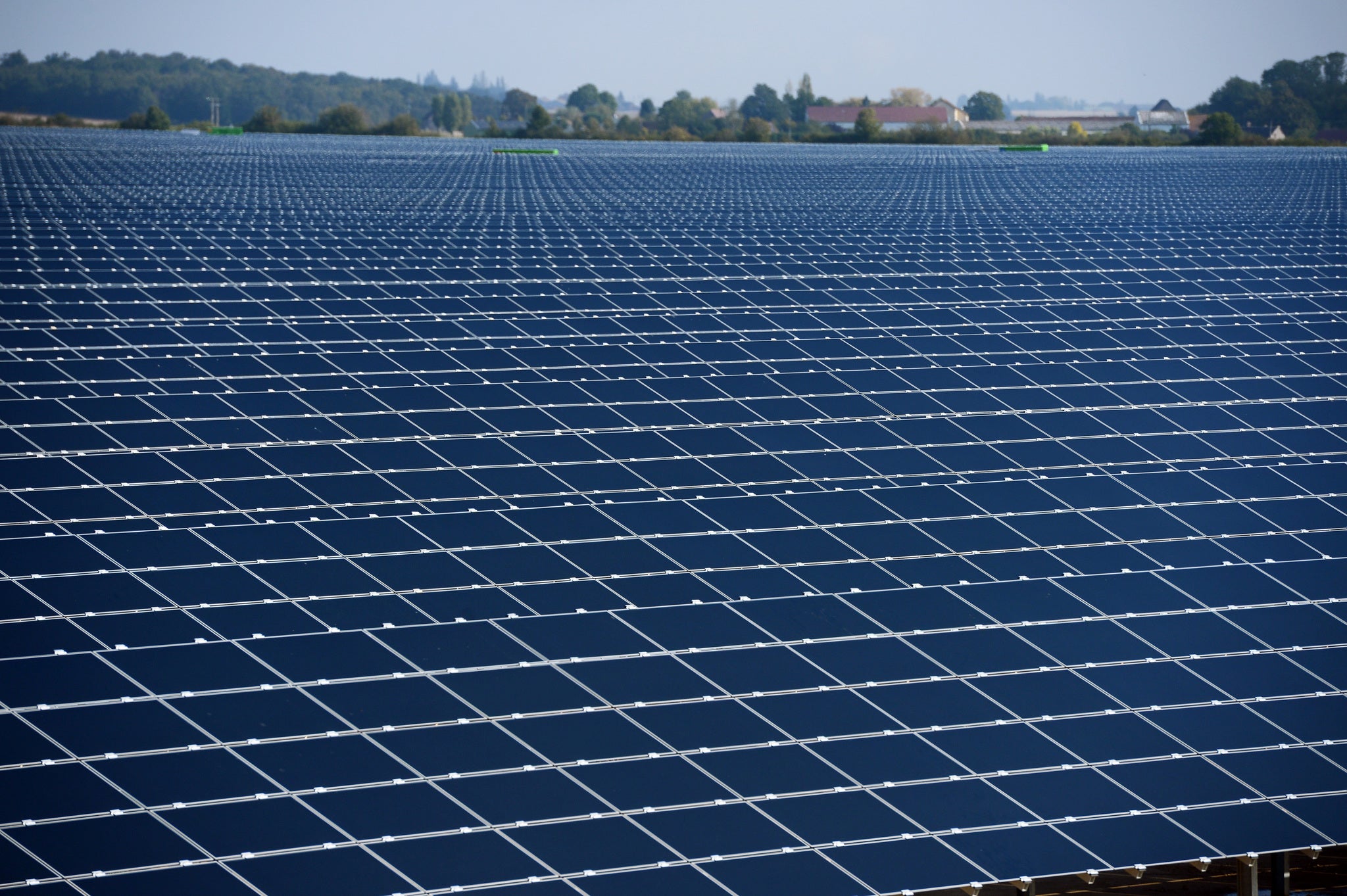Government blamed for generous green energy subsidies which leave consumers footing the bill

Your support helps us to tell the story
From reproductive rights to climate change to Big Tech, The Independent is on the ground when the story is developing. Whether it's investigating the financials of Elon Musk's pro-Trump PAC or producing our latest documentary, 'The A Word', which shines a light on the American women fighting for reproductive rights, we know how important it is to parse out the facts from the messaging.
At such a critical moment in US history, we need reporters on the ground. Your donation allows us to keep sending journalists to speak to both sides of the story.
The Independent is trusted by Americans across the entire political spectrum. And unlike many other quality news outlets, we choose not to lock Americans out of our reporting and analysis with paywalls. We believe quality journalism should be available to everyone, paid for by those who can afford it.
Your support makes all the difference.Households could be forced to pay unnecessarily high energy bills after the Government’s spending watchdog warned it may have promised green electricity investors higher subsidies than were necessary to persuade them to build new power stations.
The Department for Energy and Climate Change (DECC) promised eight giant proposed renewable energy power projects £16.6bn worth of subsidies in April. These will be paid for by consumers through a two per cent increase in their average annual electricity bill over the lifetimes of the plants.
However, the National Audit Office (NAO) said the Government may have short-changed consumers because it set the subsidy level without subjecting the applicants to a price competition – meaning that they may have been promised far more financial support than then need to make the projects viable.
“The National Audit Office is not convinced that the Government sufficiently protected consumers’ interests by awarding without competition £16.6n worth of contracts. This decision may provide higher returns to contractors than needed to secure the investment and also limits the amount of remaining budget subject to competition in later rounds,” a spokesman said.
The Government awarded the eight subsidy contracts to end a hiatus in green energy investment while it puts the finishing touches to its long-awaited new renewable subsidy scheme.
But the NAO says DECC has spent far too much of the total subsidy money available between now and 2021 - 58 per cent – on this “early” round of contracts. It contends that it would have been better to save most of the funds until the new subsidy regime launched, because this would involve a degree of price competition which could benefit consumers by driving down the subsidy rate.
“The investments supported should contribute towards the UK’s achieving its renewable energy target in 2020, but committing so much of the available funding through early contracts, without competition, has limited the Department’s opportunity to secure better value for money,” said Amyas Morse, head of the NAO.
The NAO concedes that price competition won’t automatically reduce the subsidy level but says it was only fair to consumers to try, while advocates argued that “by definition” an “administratively set” subsidy level would be higher than what is necessary for at least some of the beneficiaries.
The eight projects were chosen from 57 applicant projects and will produce enough green electricity for three million homes. They include offshore wind farms in Liverpool Bay and off the coasts of Moray, Norfolk and Yorkshire, plus biomass burners at the giant Drax coal plant complex at Selby and in Middlesborough.
A DECC spokesman said: “The Government has been dealing with a legacy of under-investment and neglect in our energy system, meaning we’ve needed to drive through reforms to secure investment in new generation to keep the lights on in the years and decades ahead while decarbonising our electricity supplies, and getting the best possible deal for consumers.
“As the NAO’s report recognises, these early contracts are designed to offer better value to billpayers than the previous system and have reassured those we need to invest in our energy security. Without that investment, projects would have been unable to go ahead or been significantly delayed – putting our future energy security at risk.”
Join our commenting forum
Join thought-provoking conversations, follow other Independent readers and see their replies
Comments